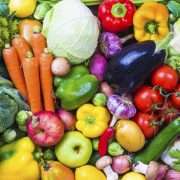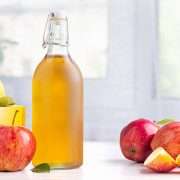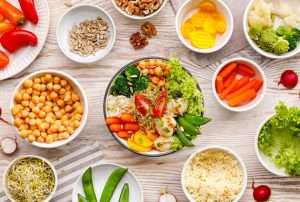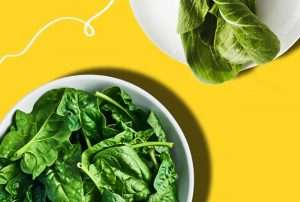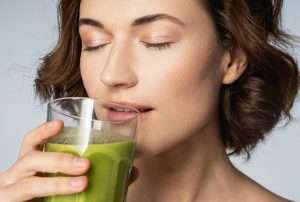Multivitamins for Vegetarians: A Simple Guide
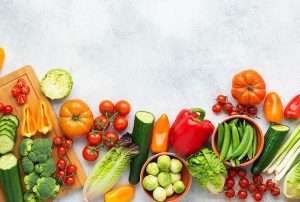
Many of us are often left wondering, whether we are getting all of the nutrition we need from the food we consume, for our bodies to function optimally.
Especially as vegetarians, filling up nutritional gaps is always a concern. Even though a vegetarian diet is rich in many essential phytonutrients, vitamins, minerals and fiber, some nutrients are only synthesised inside a living body and found exclusively in eggs, meat, fish and dairy products. There is ample data available to justify the limitations of a vegetarian diet.
But our scientific fraternity has come a long way and has managed to meticulously figure out the nutrients missing from a plant-based diet. Here, we’ll try to get a better picture about the kinds of nutrients and multivitamin vegetarian food lacks and the ones that can be made up with supplementation.
Most people who eat a well-balanced healthy diet are likely to get adequate amount of vitamins and minerals from their food. This includes fat soluble vitamins A, D, E, and K, which is stored in the body and therefore need not be consumed that frequently; water-soluble vitamins like the B vitamin group and vitamin C, which is not stored in the body and therefore need to topped up more frequently; and minerals like iron, zinc, and calcium.
Vegetarians mostly lack multivitamins like vitamin B12, vitamin D, iron, zinc, calcium and the omega-3 fatty in their diet. Vegans, who don’t consume dairy products, are also at a risk of having dietary deficiency.
Note that this totally depends on a person’s diet, genetics (ability to absorb and synthesize certain nutrients) and other lifestyle factors.
Related Article – Plant Protein- Sources, Benefits & Uses
Nutrients & Multivitamin lacking in a vegetarian diet
1. B12
Vitamin B12 comprises of eight B-vitamins – thiamine, riboflavin, niacin, pantothenic acid, pyridoxine, biotin and folate. Together they are collectively called as the Vitamin B complex.
B12 is water soluble in nature which means it needs to be consumed more frequently to avoid deficiency. It is required in the body for DNA synthesis, healthy neurological function, and manufacturing of red blood cells to carry oxygen to our cells.
Deficiency of B12 has been linked to anemia, neurological issues, low energy levels, and overall weakness. Meaning a B12 deficiency can leave you feeling tired and sluggish—something none of us can afford to do these days.
Because our bodies do not make B12, we must get it from food sources, which primarily includes animal products such as eggs, dairy, and red meat and/or supplements. The thing about B12 is no plants, fungi, or animals are capable of synthesizing this vitamin. All B12 is made by strains of bacteria that have the particular enzymes for synthesis.
However, there are plant-based sources that naturally contain B12 like shitake mushrooms, spirulina, or fortified food items like nutritional yeast, soy milk and meat substitutes. But since these options are less prevalent than their counterparts, vegetarians are at particularly high risk for B12 deficiency.
2. Vitamin D
Vitamin D is needed for maintaining healthy bones, teeth and muscles. It is also required to support cardiovascular functions, immune activity and sustain a healthy pregnancy. Vitamin D is produced in the skin when exposed to sunlight and this is the major source of Vitamin D for most people. Usually, 20 minutes of sunlight on the face and arms is needed to manufacture adequate Vitamin D.
Countries in the arctic region have limited sunlight exposure throughout the year and are more likely to go for Vitamin D supplementation. Vegetarians too, in our country have fewer options to look out for and have to rely on fortified grains and cereals as the primary source of Vitamin D.
Requirement of Vitamin D however, isn’t exclusive to vegetarians or people from Polar Regions – everyone should be concerned about their Vitamin D intake.
3. Calcium
Calcium is a mineral that requires vitamin D to be properly absorbed by the body. It is particularly important for maintaining healthy and strong bones for people of all age-groups. It plays a pivotal role in heartbeat regulation, muscle contraction, nerve impulse transmission and blood clotting.
Adverse effects of calcium deficiency can lead to low bone mineral density, an increased risk of fractures and osteoporosis, if left untreated.
Calcium is mainly found in dairy products, dark leafy greens, almonds, soybeans and fortified soymilk, tofu, and tempeh. Even if you eat a lot of green veggies, it is advisable for everyone to consider calcium supplementation. Especially if you’re very fond of coffee as caffeine can interfere with calcium absorption.
4. Iron
Like Vitamin B12, iron plays a major role in production of red blood cells, specifically in the formation of hemoglobin, which helps in transporting oxygen from the lungs to other parts of the body.
Iron comes in two forms: heme iron, found in animal sources like meat, poultry, and fish, and non-heme iron, found in plant-based foods like beans, legumes, and dark leafy greens or fortified cereals.
Non-heme iron isn’t as readily absorbed by the body. A routine blood-test is helpful in determining accurate levels.
There are foods that can inhibit iron absorption such as calcium in dairy products; phytates in grains, nuts, sesame seeds, soybeans and polyphenols in black tea, coffee, red wine, dark chocolate, cocoa powder
On the flip side, vitamin C rich foods can enhance iron absorption. The best food sources for vegetarians are artichokes, beans and leafy greens.
5. Zinc
Zinc contributes to a number of important bodily processes, including building up our immunity, combating oxidative stress and aiding in whole-body homeostasis.
As a component of more than 300 active enzymes, zinc plays a definitive role in everything that cells do, be it to replicate, regulate, differentiate or proliferate.
Zinc absorption in humans can get to as low as 33% and a plant-based diet consisting of grains, nuts, sesame seeds and soybeans contain something called as phytate – which can further inhibit zinc absorption.
One way to decrease the phytate content in foods is by soaking nuts, seeds, and legumes overnight, or consuming fermented foods like tempeh, miso, or sprout the grains before eating.
However, zinc absorption might still be lower in vegetarian diets compared with non-vegetarian populations. So even if you’re taking measures to reduce the phytate content in your plant-based foods, it’s best to supplement with zinc to ensure optimal dosage.
6. Omega -3s
Vegetarians are shown to be low in essential fatty acids and one popularly known source of omeg-3s is considered to be fish oil. However, there are vegetarian sources of omega-3s as well, such as flax seeds, chia seeds, hemp seeds, walnuts and olive oils.
Algae oil is another vegan-friendly source of omega-3 inclusive of DHA and EPA as well. In fact algae are pretty much the origin of DHA and EPA that continues up the food chain to shellfish and fish.
Omega-3 fatty acids perform a variety of essential biological functions and are primarily known for their benefits to heart, joint, metabolic and cognitive health.
Related Article – 7 Easy Ways To Keep Your Diet Balanced
Nutrients & Multivitamin present in a vegetarian diet
Leafy greens are a potent source of a variety of vitamins and minerals in a vegetarian diet. They have plenty of B-carotene in them, including vitamin A, B, C, E and a very good source of natural folate. Let’s look at some of their health benefits:
Vitamin K: is helpful in preventing osteoporosis and inflammatory diseases and can be found in high concentration in kale and spinach.
Vitamin A: Plays a vital role in improving vision, bone growth, reproduction, cellular function, and boosting immunity. Wheat, corn, rice, soy and kale are excellent sources to gather vitamin A from.
Vitamin E: Is required for building immunity, aid metabolic processes, fights free radicals and slows skin aging. Duck weed has the highest concentration of vitamin E among leafy vegetables.
Vitamin C: Promotes healing, helps the body absorb iron, and plays an important role in the health of skin, bones, and connective tissue, is a powerful antioxidant. Any species of Amaranths are great sources of Vitamin C.
Folate: It is a water-soluble compound belonging to the B group of vitamins. Only 50 percent of the folate consumed is bioavailable. Folic acid is the synthetic form of folate which is either consumed as supplements or fortified in foods and is comparatively more bioavailable. All kinds of green leafy vegetables are rich in folate.
Related Article – Veggie protein sources that are a good source of protein
Folate helps in:
- Improving fertility in men and women
- Promote normal fetal development
- Decrease risk of dementia
- Lower the risk for colorectal cancer
- Lower cholesterol levels
Magnesium: Decreases risk of developing type II diabetes and osteoporosis can reduce frequency of migraines and lower blood pressure.
Potassium: Plays an important role in cellular function in the body, is required for heart and muscle contraction, is been linked to prevent osteoporosis.
Calcium: Is deemed important for bone health, could potentially protect from cardiovascular disease and cancer, although research is inconclusive.
A comparative mineral profile of few common leafy greens is represented below:
|
Leaf |
|||
|
Mineral Concentration |
Kale |
Spinach |
Duck-weed |
|
Calcium (mg) |
846 |
1036 |
607 |
|
Iron (mg) |
8.3 |
28.4 |
25.7 |
|
Magnesium (mg) |
265 |
827 |
231 |
|
Phosphorus (mg) |
519 |
513 |
1741 |
|
Potassium (mg) |
2769 |
5840 |
5319 |
|
Sodium (mg) |
214 |
827 |
132 |
|
Zinc (mg) |
3.2 |
5.5 |
15 |
But, do you need to take multivitamin supplements if you are a vegetarian?
It is important to understand that no two vegetarian diets are alike. Every other aspect of your lifestyle including dietary preferences influences the supplements you require. So not everyone that follows a vegetarian diet need a multivitamin supplement.
While there is little evidence to suggest that multivitamins do any harm if you know you lack certain vitamins and minerals in your diet, it is best to speak to your health care provider about testing your levels.
Despite the fact that taking a daily multivitamin supplement especially if you are a vegetarian helps fill nutritional gaps, it is important to remember that multivitamins are called “supplements” because they are meant to supplement your diet; not replace or substitute for a balanced diet.

